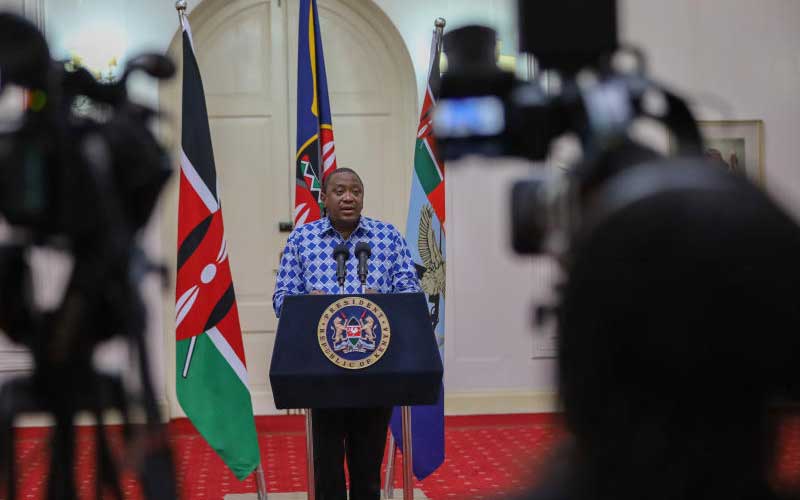×
The Standard e-Paper
Join Thousands Daily

President Uhuru Kenyatta has announced a raft of tax cuts as the government seeks to cushion households and companies from the crippling effects of the coronavirus pandemic.
The tax relief options mainly target low-income earners, and include cuts in Pay as You Earn (PAYE), value-added tax (VAT), turnover tax (TOT) and corporate tax.